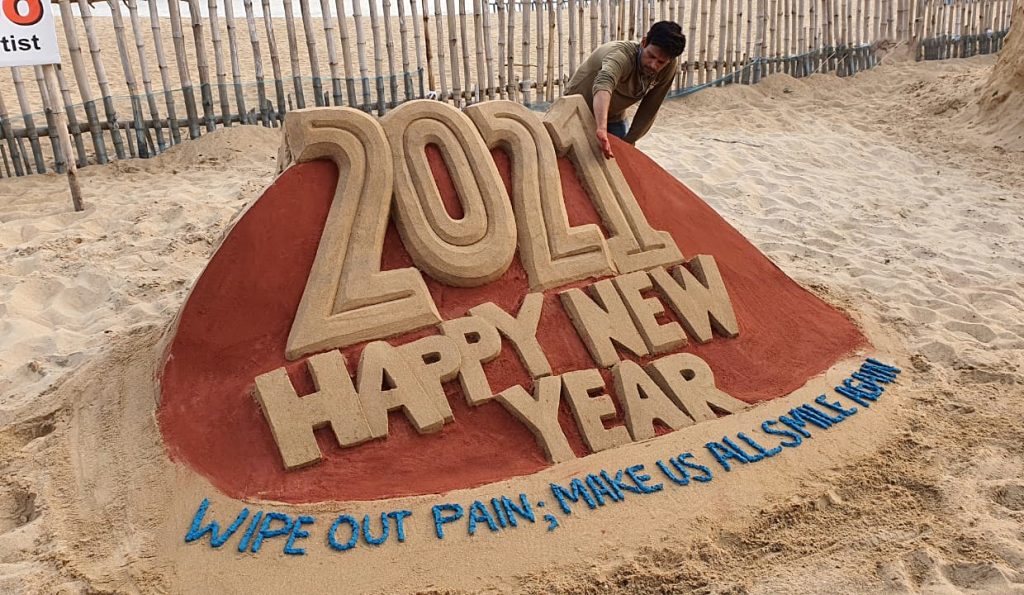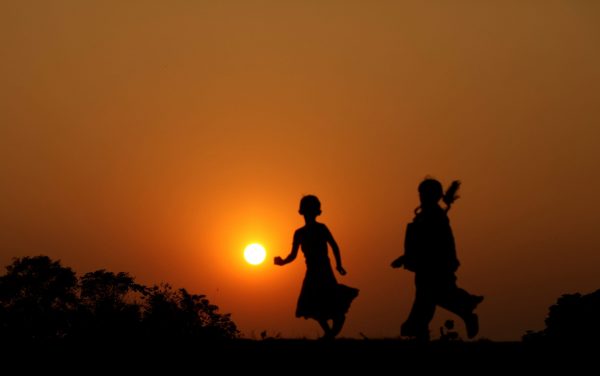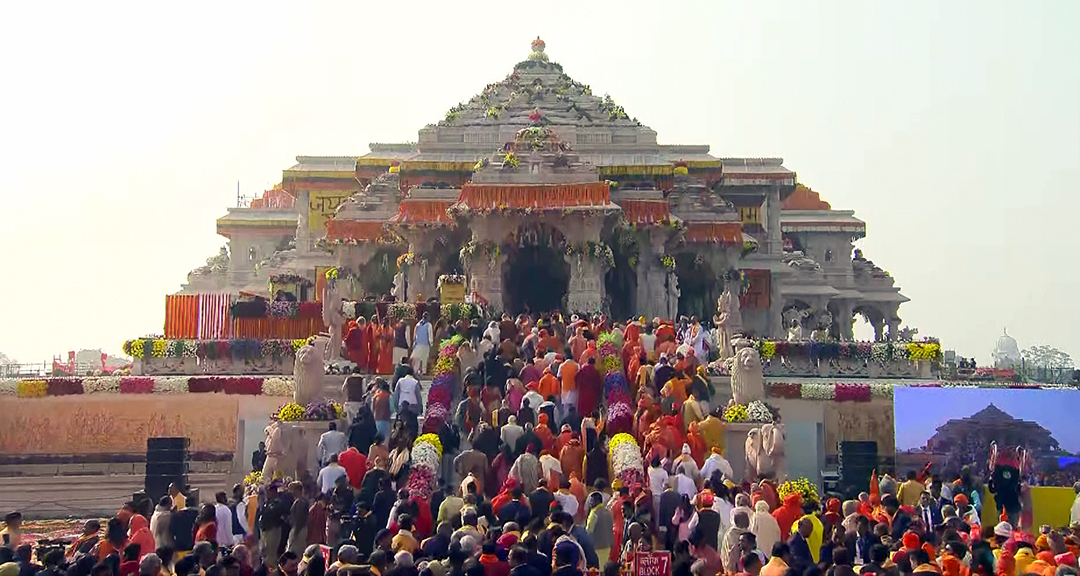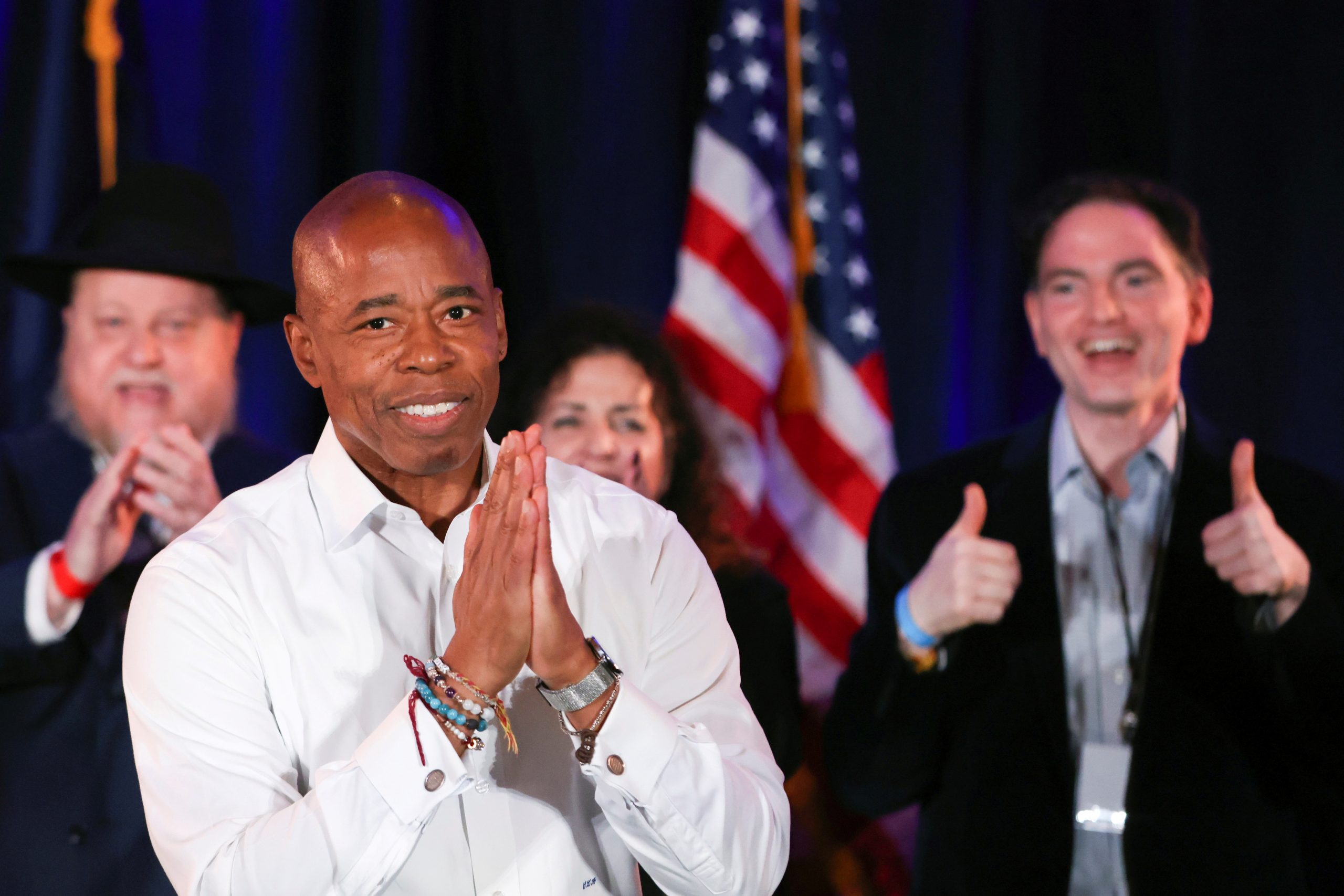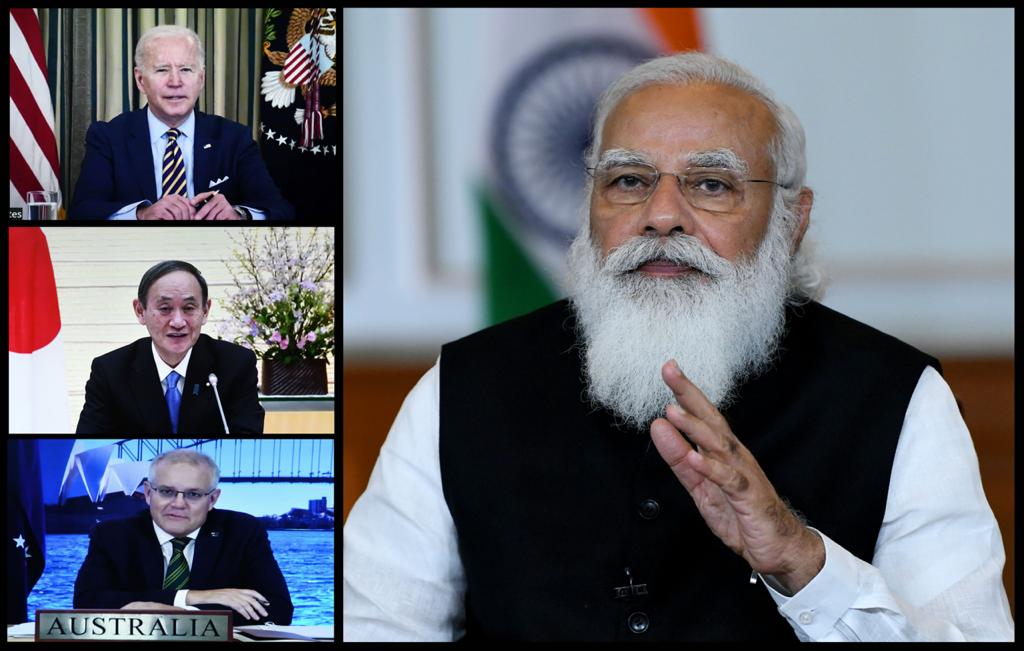The Indian EYE takes a look at some of the most important new stories from India in 2020, which will make impact in 2021 and beyond
Our Bureau
New Delhi
It was a gloomy year. The world seemed to come to a standstill. But, in India, there was no shortage of action. Of course, there was pandemic, but India also had protests and political face-offs. It was a series of unforeseeable events. 2020 may go down as a year of infamy, headlined by the COVID-19 pandemic. But many other important events took place. These events may play a crucial role in the years to come.
Covid-19 ravages the society
The first case of the coronavirus in India was located in Kerala on January 30 through a medical student who had returned from Wuhan. This was followed by the second and third cases in February. By March, the virus had spread to Delhi, Hyderabad, Bengaluru and other cities. Then it was a havoc. India overtook other nations to become the nation with the second-highest cases in the world.
As the virus spread, India saw a humanitarian crisis, with the lockdown impacting nearly 40 million migrants. What started as groups of migrants walking from Mumbai and neighboring districts to their hometowns in Gujarat and Rajasthan slowly grew into the largest mass exodus since the Partition, in March.
Many travelled thousands of kilometers on foot to reach their villages in Uttar Pradesh and Bihar, while others travelled by the special Shramik trains that were launched by the Government. Not all reached their destinations, though.
While the Government has since said they do not have any data on the number of migrants who died, according to data compiled by road safety NGO, 198 migrants lost their lives in road accidents during this lockdown period, while many more have died of hunger, heatstroke and exhaustion.
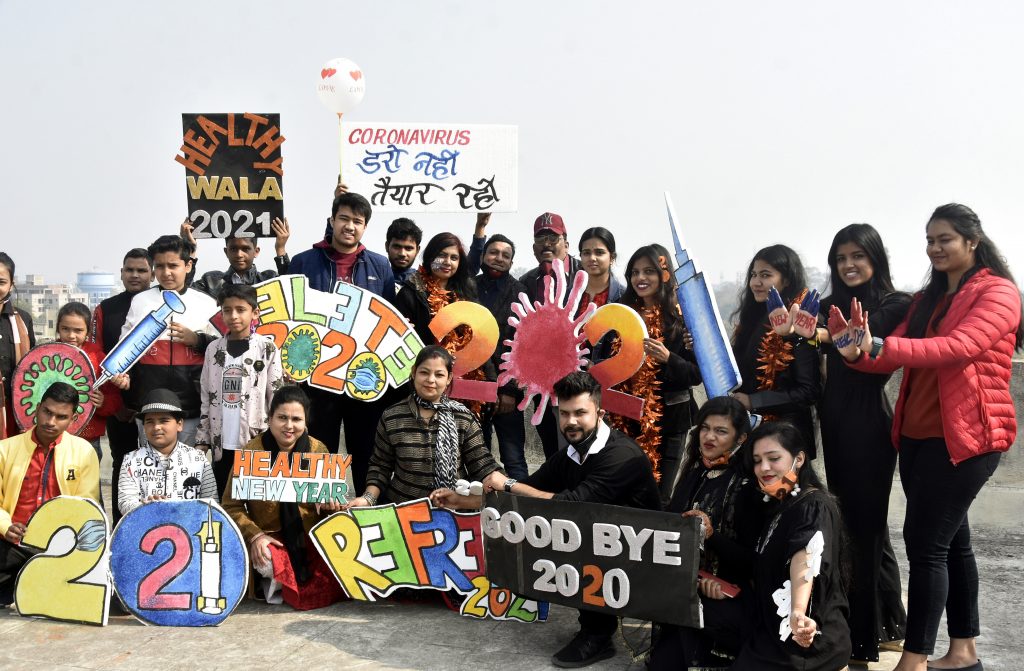
BJP’s temple dream comes true
On August 5, Prime Minister Narendra Modi laid the foundation brick for the Supreme Court-mandated Ram Temple to be constructed in Ayodhya. The construction of the Ram temple has been BJP’s poll pledge since 1991. Construction work is set to be completed in 36-40 months, as per the Temple trust. The temple would be the final resting place of Ram Lulla, the infant Ram which is currently housed in a tent.
On August 5, the first anniversary of the revocation of special status granted to Jammu and Kashmir, Modi called it a day that marked the freedom of Ramjanmabhoomi from the chain of “destruction and resurrection”.
Economy turns wobbly
India recorded a GDP drop of 23.9 per cent, in the period April-June 2020. This is the worst contraction since India started reporting GDP data in 1996. The stringent lockdown measures, which put a huge dent on the economy, caused all sectors, apart from agriculture to suffer huge losses. The gross value-added growth (GVA) in the manufacturing sector shrank by 39.3 per cent, while industries such as construction, trade, travel and hospitality, were all badly affected. The RBI’s monthly bulletin for November has projected contraction for a second consecutive quarter, meaning that India has entered into a technical recession for the first time in its history.
Demand conditions remain weak, evidenced by the decline in exports and imports, which reflect the state of external and domestic demand, according to NCAER. The November RBI Consumer Confidence Survey showed that while consumer sentiment was higher that month than in July and September 2020, confidence was lower in November compared to the same period a year ago.
Farmers get angry
In September 2020, both the houses of parliament passed the farm bills amid protests by the opposition parties and a longtime ally of the ruling party. Opposition legislators raised slogans, tore documents and tried to grab the speaker’s microphone in the upper house of parliament before bills were passed by a voice vote. While the government said the law will make it easier for the farmers to sell their produce directly to big buyers, the Opposition slashed the bills and called them “anti-farmer” and “pro-corporate”. On September 24, the controversial bills got the President’s assent and they became laws. And with it, the political face-off too intensified. While the Opposition continued to attack the government, and urged to repeal the “black” law, the government accused the Opposition of “misdirecting” the farmers.
China threatens border peace
On May 5th, a scuffle broke out between Indian and Chinese forces, who had encroached into the Indian border at the Pangong Tso lake in Ladakh. Soldiers from both sides engaged in stone-pelting and fistfights and around 11 soldiers were injured.
On June 14, after a group of PLA soldiers erected tents and an observation post on the LAC, senior Indian Army officer Colonel Suresh Babu and two of his soldiers went, unarmed, to meet their Chinese counterparts and discuss de-escalation measures. They were attacked with iron rods and barbed wires, unprovoked. In the resultant hand to hand combat, during the interluding night between June 15 and 16, 20 Indian army personnel and 43 Chinese soldiers were killed.
While anti-China sentiments flared in India, with a call for banning Chinese goods, the Indian Government reacted by banning 59 mobile apps developed in China, along with several infrastructural projects for which Chinese companies had won contracts.
Non-stop TV Drama
Actor Sushant Singh Rajput was found dead in his Bandra residence on June 14. The death was treated as a suicide and discussions around his mental health state and clinical depression due to professional rivalry, did the rounds. Soon after Rajput’s death, actor Kangana Ranaut caused a stir when she alleged that Rajput could not have any mental problems as he was a rank holder, and accused a section of the film industry of not acknowledging Rajput and driving him to his death. Cases were filed against Bollywood celebrities and members of the film industry in connection with the death. The police summoned a number of producers, filmmakers and actors in connection with the case.
Meanwhile, Sushant’s family filed an FIR against actress Rhea Chakraborty, his former girlfriend, and five others of abetment to suicide. On 8 September, Rhea was arrested by the Narcotics Control Bureau (NCB) after three consecutive days of questioning, in connection with a drugs case. Actors Deepika Padukone, Sara Ali Khan, Shraddha Kapoor and Rakul Preet Singh were also summoned by the NCB over the drugs racket case unearthed during the investigation.
Bollywood actor Kangana Ranaut’s statement on Mumbai police created a political divide. Ms Ranaut locked horns with Maharashtra’s ruling Shiv Sena and its party leaders after she expressed her distrust in the Mumbai Police in view of actor Sushant Singh Rajput’s death.
‘Love Jihad’ becomes a law
The anti-religious conversion law, which came into force in the form of an ordinance on November 28, is seen as giving legal teeth to the BJP’s battle against so-called ‘love jihad’, the unproven conspiracy theory that Hindu women are being falsely enticed and converted by Muslim men. When UP Chief Minister Yogi Adityanath’s government okayed the ordinance, proposing a maximum punishment of 10 years for “love jihad” related offences, it triggered a political row.
While BJP leader Devendra Fadnavis said incidents of “Love Jihad” were taking place in the country and therefore, laws to curb the practice were justified, the Opposition accused the governing BJP of pursuing “communal agenda”. BSP President Mayawati too asked UP government to reconsider its new anti-religious conversion ordinance. “The new ordinance introduced in haste by the UP government against love jihad is riddled with doubts since religious conversion through compulsion or fraud has found no acceptability or respectability anywhere in the country,” The Bahujan Samaj Party (BSP) chief said in a Hindi tweet.
Online media under the watch
In November, the government issued an order bringing online mediums, including films and news content, under the ministry of information and broadcasting. Meaning online streaming services such as Netflix, Amazon Prime Video, Hotstar, among others would be now regulated by the Centre. It soon became a social media frenzy with critics claiming that the move will have adverse consequences as it could kickstart an era of more frequent and stricter censorship on online content. Several Bollywood filmmakers too criticized the government’s order and called it “unacceptable”. Karan Anshuman, director of ‘Inside Edge’, and ‘Mirzapur’ tweeted that viewers and creators should come together and challenge censorship.
